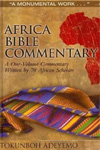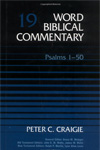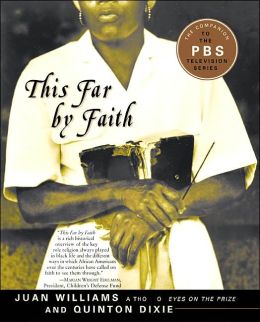|

MEN’S DAY
LECTIONARY COMMENTARY
Sunday, July 29, 2012
(Please see the extensive and provocative video in today's Cultural Resources unit. The video features James Baldwin and Dick Gregory. It is titled "Baldwin's Nigger.")
John Wesley Wilson III, Guest Lectionary Commentator
Senior Pastor, First Christian Methodist Evangelistic Church, Dallas, TX
Lection – Psalm 25:8-15 (New Revised Standard Version)
(v. 8) Good and upright is the Lord; therefore he instructs sinners in the way. (v. 9) He leads the humble in what is right, and teaches the humble his way. (v. 10) All the paths of the Lord are steadfast love and faithfulness, for those who keep his covenant and his testimonies. (v. 11) For thy name’s sake, O Lord, pardon my guilt, for it is great. (v. 12) Who is the man that fears the Lord? Him will he instruct in the way that he should choose. (v. 13) He himself shall abide in prosperity, and his children shall possess the land. (v. 14) The friendship of the Lord is for those who fear him, and he makes known to them his covenant. (v. 15) My eyes are ever toward the Lord, for he will pluck my feet out of the net.
I. Description of the Liturgical Moment
As enslaved Africans and African Americans our ancestors were denied the right to participate in any form of organized worship that they organized and led. Organized worship by them would have led to collective thinking, enlightenment, hope, and eventually freedom. Our forefathers’ ability to overcome adversity came directly from a sincere faith in The Divine and not from organized worship. Their unceasing faith was entirely dependent first upon their Traditional African Religions and later Christianity after they converted it for their purposes. With faith as their cornerstone, the Creator lifted many black Christians to carry the cross and become soldiers fighting for justice and thereby transforming the Church.
With many acts of faith, great men helped establish the black church in America. This movement produced powerful men of God who uplifted an oppressed black society and helped liberate a racist white society. Godly men such as Denmark Vesey, Henry McNeal Turner, Howard Thurman, James Lawson, Fred Shuttlesworth, and countless unnamed men boldly took on the Christian mantle, became agents of change, and fought to end social injustice in America.1
For the black church, Men’s Day reminds us how God has sustained and elevated the church using black men. It is a time to celebrate godly black men who have chosen to become change agents for the Lord and who will continue the fight for our families, communities, and the black church.
II. Biblical Interpretation for Preaching and Worship: Psalm 25:8-15
Part One: The Contemporary Contexts of the Interpreter
At various times in our life we often knowingly travel down the broad road that leads to destruction resulting in severe consequences beyond our control. Once we have realized the magnitude of our sins coupled with the absolute holiness of God, we understand that a righteous God cannot simply overlook our transgressions. It is then that we cry out in despair for forgiveness—an opportunity to renew our walk with God. The good news is that we serve a God who not only is righteous but is good (loving)—good in the sense that it is God’s desire to forgive our sins if we but repent.
This psalm helps us recall some of the unfortunate decisions we have made in life. As men, maybe we have not been the best husband, father, son, or friend that we could have been. Maybe as we look at our past we see many regrets such as incarceration, drug abuse, or bad relationships. This psalm reminds us that crying out to God for forgiveness is an act of wisdom. Because of God’s goodness, we can experience his mercy, faithfulness, and forgiveness. God then leads us back on the right road—the road that leads to righteousness (holy living).
Part Two: Biblical Commentary
Psalm 25 is commonly designated by most scholars as an individual lament (a crying out due to grief or despair). The setting in which this psalm was composed is unknown, and its acrostic structure has led many to consider it to be a literary creation employed in communal worship. The language of the psalm suggests a covenant background (“steadfast love” in verses 6, 7, and 10 and “covenant” in verses 10 and 14). However, a more dominate characteristic of the psalm is the use of language common to wisdom literature (“way” in verses 4, 5, 8, and 9; “fear” in verses 12 and 14; and “good” in verses 8 and 13). Psalm 25 is divided into three primary sections: the opening prayer (verses 1-7), confidence in God’s goodness (verses 8-14), and the closing prayer (verses 15-21).
As we come to verses 8-15, after much prayer the psalmist expresses more fully his confidence in God. He has confidence because he trusts the goodness of God, which is the theme of this passage. In the 11th verse, a prayer of forgiveness is offered by the psalmist. By focusing on God’s goodness, the psalmist becomes distinctly aware of his own unworthiness and the need for a full and complete pardon.
The opening verses of the passage (verses 8-10) are a continuation of prayer from the previous section. The psalmist does not focus on his enemies or his attackers, but on the depravity and sin found in him. He realizes that he is a sinner in need of divine instruction from a good and upright God. The two key words found in verse 8 give us the proper theological view of God. The psalmist realizes that God is both “good” and “upright.” The uprightness of God is shown in his inability to participate in sin; the goodness of God is shown in his ability to forgive sin. This gives the psalmist complete confidence that he will receive the deliverance and guidance that he desperately seeks in verse 9.
However, in verse 10, the psalmist points out that this deliverance and guidance is conditional. God’s steadfast love and faithfulness are given to those who have a relationship with him, who keep his revealed will for their lives. The psalmist, understanding the righteousness of God contrasted with his massive shortcomings, with much reverence pleads for pardon from God. Since this lectionary is especially designed for the African American faith community, I do not speak out of turn when I say the psalmist is every black man. Each of us who are in relationship with God have realized again and again our shortcomings as sons, fathers, brothers, uncles, partners, friends, and most importantly sons of God. In these moments of realization, we hurriedly and humbly, if we are wise, plead before God for pardon and seek forgiveness from those whom God has placed in our lives.
The psalmist then raises a rhetorical question in verse 12: “Who is the man who fears the Lord?” In other words, the psalmist asks, “Who is the truly God-fearing person?” It is the person who follows God’s instructions. The word “fear” in this context is not speaking of anxiety or terror but of reverence or awe towards God that it is reflected in our everyday living. Our conduct as men in all of our relationships and the way that we own up to our responsibilities directly reflects upon how much we reverence God. It is this proper fear of God that directs the psalmist to the way of life that he must consciously choose to live. Verse 13 lets us know that God rewards those who diligently seek him. Those who fear God, those who have a covenant relationship with our Creator, shall experience prosperity and inheritance. The implication is that the psalmist and his descendants would enjoy a good life and become great landholders if they adhered to God’s laws.
An even greater blessing than well-being and monetary inheritance for the psalmist—a friendship with God—is found in verse 14. The covenant relationship that the psalmist had with God was not merely a conditional contract, offering rewards in return for obedience; it was a privileged and intimate relationship offered by God to his covenant people. To those who feared or revered God, there was held out a promise of an intimate relationship of friendship. It is this bright prospect that prompts the psalmist to return to prayer for the concluding verses of this psalm. Is not this the ultimate desire of every male believer—an intimate relationship with our Creator—since we know that it is only after establishing this relationship that we can be fully men?
This passage ends with the psalmist waiting patiently for God’s goodness. The psalmist is greatly troubled from within and from outside forces. He is lonely and distressed. His enemies are numerous and he cries out to God in despair. Knowing God’s goodness, the psalmist confidently pleads for God to end his loneliness and affliction. He desires intimacy with God; only then will he find true peace and comfort.
Celebration
We celebrate God’s infinite goodness towards African American men. God’s love and faithfulness have never failed us. The way has been arduous and sometimes almost unbearable, but African American men have prospered because of their friendship with God. God has faithfully raised many mighty black men, names known and unknown to lead our families, communities, churches, and governments. We are a people of well-being, and our inheritance is great! For this and so much more, we give God praise.
Descriptive Details
The descriptive details of this passage include:
Sounds: Silence and awe of God’s righteousness; celebratory praise of God’s goodness (v. 8); shouting because you are a friend of God (v. 14);
Sights: God’s instructing us in what is right while displaying nurturing love and faithfulness (vv. 9, 10); God pardoning our guilt and erasing our debt (v. 11); our reverence of God in our daily lives (v. 12); and
Smells: The aroma of fresh air, green grass, flowers, trees, fresh water, and the warmth of the sun, which depict the perfect inheritance promised by God (v. 13).
III. Suggested Reading
 |
Adeyemo, Tokunboh, gen. ed. Africa Bible Commentary: A One-Volume Commentary Written by 70 African Scholars. Grand Rapids, MI: Zondervan, 2010. |
 |
Craigie, Peter C. Word Biblical Commentary, Vol. 19: Psalms 1–50. Waco, TX: Word, 1983. |
 |
Williams, Juan, and Quinton Dixie. This Far by Faith: Stories from the African American Religious Experience. New York, NY: William Morrow, 2003. |
Note
1. For further information, please consult: http://www.nps.gov/nr/travel/civilrights/text.htm (accessed 19 February 2012)
|